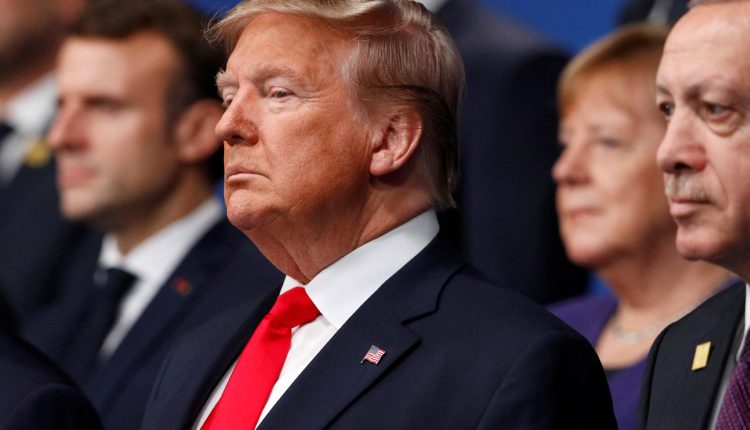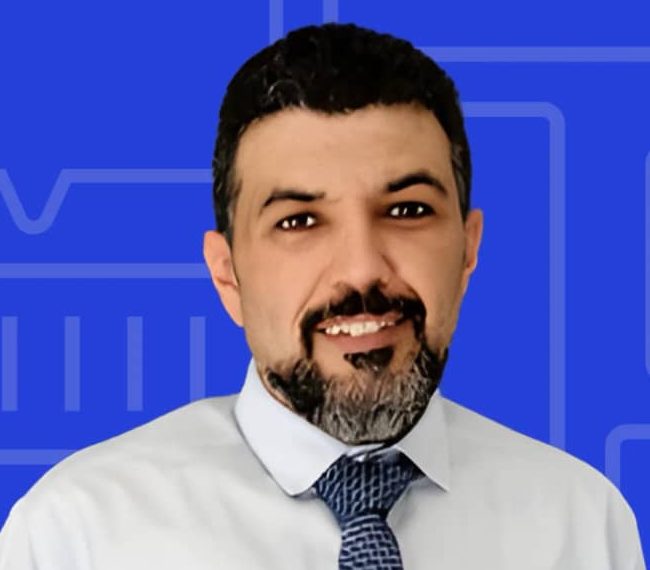From SDF to Natural Gas and Israel: Is Ankara Back in the U.S. Strategic Focus?
By Sarkis Kassargian
Ankara greeted Donald Trump’s victory in the US presidential election with joy and hope after four difficult years under Joe Biden. This optimism was fueled by the belief that it might be possible to find common ground with Trump, who is fascinated by strong leaders, which could serve as a way to boost the stagnant bilateral relations.
Unlike Biden, who only invited his Turkish counterpart to visit the White House in the final months of his term—a visit that did not happen due to technical reasons—Trump’s recent remarks about Erdoğan inviting him to visit Turkey, along with references to a visit by the Turkish president to the White House, stand out as notable points of comparison between the two presidents.
During his first term, Erdoğan was able to reach Trump by phone directly on his private number without going through US bureaucratic channels. The US president was committed to the possibility of partnership with his Turkish counterpart and frequently praised his leadership qualities and political stature.
However, on the ground, this period was not without negative events that left a mark on Turkish and international memory, such as Trump’s dismissive letter advising Erdogan “not to be a fool,” or his threat to destroy the Turkish economy if the detention of Pastor Brunson continued. The sanctions imposed by Washington on Ankara due to its acquisition of the Russian S-400 air defense system remain in place to this day, despite some exceptions granted by the Biden administration to its Atlantic partner.
Compatibility of Vision and Similarity of Style
However, recent developments suggest that Erdoğan’s bet on Trump was largely justified compared to the Biden presidency. The two presidents have communicated multiple times since the US election in November. Turkey’s foreign minister visited Washington 100 days after Trump took office and just a month after his appointee was assigned to the foreign ministry, whereas former Turkish Foreign Minister Mevlüt Çavuşoğlu had to wait 15 months to make his first visit to Washington during the previous administration.
Trump is the fourth president in Erdoğan’s experience with six US presidential administrations, and Erdoğan is well-versed in dealing with the White House. Both share many similar visions and policies. They both tend to reject the institutional structure and bureaucracy of the state, adopt polarizing rhetoric in domestic politics, and oppose liberal and progressive policies.
This similarity has been reflected in the reassuring positions issued by the White House regarding Erdoğan. Days after Turkish authorities detained Istanbul’s mayor and Erdogan’s rival in the presidential race, Ekrem Imamoğlu, in what the opposition called a “judicial coup,” Trump praised his Turkish counterpart as a “good leader.” Subsequently, he expressed admiration for Erdoğan in the presence of Israeli Prime Minister Benjamin Netanyahu, offering to help ease tensions between them “as long as Netanyahu is reasonable.”
Trump’s Middle East envoy, Steve Witkoff, also saw a bright future for US-Turkish relations, describing a “great and transformative” conversation between the two leaders and promising “a lot of positive and good news” coming from Turkey.
A Deal that Puts Washington First
Trump, who insists on portraying himself as a shrewd deal-maker and successful real estate developer, expects to leverage Erdoğan’s pragmatism and his eagerness to seize opportunities to establish a stable partnership with Ankara. In this partnership, Washington would hold the largest share of the stakes, thereby securing the upper hand in decision-making, based on the assumption that it can pressure Erdoğan if any disagreements arise.
Despite public rhetoric emphasizing independence and the decision to formulate foreign policy in accordance with national reconciliation, Ankara has complied with secret warnings from the US Treasury Department aimed at limiting the activities of banks suspected of assisting wealthy Russians under sanctions to move money abroad, and at curbing trade with Moscow in goods subject to US and EU sanctions.
Previous experiences—such as Erdogan’s acquiescence to demands for the release of Pastor Brunson even before a Turkish court issued a ruling, despite Erdoğan’s assertion that “it is impossible to extradite him as long as he is alive,” or the suspension of the military operation against the Autonomous Administration and the SDF in northeast Syria—strengthen the prospects of Trump’s ability to exploit Erdogan’s penchant for deal-making to serve his political ambitions and economic interests.
“Pivoting to Asia”: Turkey’s Decline in the Map of US Priorities
The US ‘pivot to Asia’ strategies have led to a decline in Turkey’s strategic importance to the United States, alongside diverging interests between Ankara and Washington in the Middle East—particularly regarding Israel.
Although the Ukraine war has increased Turkey’s significance, it has not rendered Ankara an indispensable actor. Turkey is not central to the Sino-American rivalry in the Middle East and is not among China’s five main partners in the region. It was also absent from the stops on Chinese President Xi Jinping’s Middle East tour in 2022.
US military investments in other countries such as Greece, Cyprus, and Jordan have further diminished Turkey’s importance in US security calculations in the Middle East and Eastern Mediterranean.
The US presence at the port of Alexandroupolis, only 40 kilometers from the Turkish border, has raised concerns in Ankara. This base is a crucial hub for transferring equipment from US and NATO forces to Eastern Europe, bypassing the Bosporus Strait, which is controlled by Turkey. Likewise, the potential stationing of US forces on Aegean islands has been another source of tension for Turkey.
Is Ankara filling Washington’s vacuum?
Turkey has benefited from helping both sides of the Ukrainian war. Turkey’s trade with Russia has almost tripled since Russia’s full-scale invasion of Ukraine, despite being affected by the decline in Russian tourism, in exchange for supplying Ukraine with weapons and Bayraktar drones that are now manufactured in Ukraine.
Among the top ten suppliers of ferrous scrap to Turkey in early 2025, Belgium, Denmark, France, Lithuania, and Romania joined the US and UK in decreasing shipment volumes, while the Netherlands and Poland moved alongside Russia, the leader, in a slight increase in volume.
Ankara has also expanded its military influence in Syria, Libya, the South Caucasus, the Eastern Mediterranean, and the Gulf.
At the same time, Ankara is closely monitoring statements made by some figures close to the US president regarding his desire to withdraw from the Middle East, and has expressed its readiness to be the force capable of replacing the US military in achieving its stated and unstated regional objectives.
Driven by rising tensions in the Middle East, Erdogan’s power partner, Devlet Bahçeli, leader of the right-wing Nationalist Movement Party, recently launched a Turkish-Kurdish peace initiative—an important opportunity for cooperation with Washington in the region.
This initiative has made significant progress on the peace track with the PKK’s announcement of its general congress, amid expectations that it will heed the call of its historical leader Abdullah Öcalan to dissolve itself. Such a move could resolve a major rift between the US and Turkey regarding the legitimacy of the YPG and SDF in Syria, which have been the backbone of the US-led coalition in the decade-long fight against ISIS.
As part of his efforts to avoid ‘endless wars,’ Trump unsuccessfully attempted during his first term to withdraw US special forces working alongside the SDF against ISIS in Syria. However, a partnership between these trusted US-backed forces and the newly formed regional coalition—comprising Iraq, Syria, Jordan, Lebanon, and Turkey—paves the way for closer US-Turkish cooperation in Syria.
Gas and Oil at the Heart of the Turkish-American Relationship
Trump revealed an intriguing conversation he had with Erdogan, stating: “I congratulated him, I told him, ‘You have done what no one has done for a thousand years. You have taken over Syria under different names, but the result is the same.’”
Amid escalating regional competition, Turkey is emerging as a historical counterbalance to Iranian and Russian influence in the Middle East, leveraging its Ottoman heritage and the Islamist tone of its current discourse. Additionally, the prospects for energy cooperation add another strategic dimension to the Turkish-American relationship, especially regarding shale oil exploration in Turkey and natural gas development in the Eastern Mediterranean.
Washington also hopes to involve Turkey in the East Mediterranean Gas Pipeline project, which aims to transport natural gas from Eastern Mediterranean fields (primarily Israeli and Cypriot) to European markets via Greece and Italy.
However, all of this depends on Ankara’s ability to reassure Washington’s regional allies, particularly Tel Aviv. This explains the series of meetings hosted by Azerbaijan between Turkish and Israeli officials to establish a line of separation between the two countries in Syria through trusted communication channels, in order to prevent any potential clashes—contrast to Erdogan’s public rhetoric against Israel.
The US-Turkish partnership, with Tel Aviv’s approval, could provide Trump with significant economic and political advantages. American companies would benefit from oil and gas deals in Turkey and Syria, while he could present the Turkish-Israeli reconciliation and the partnership between the SDF and Damascus—both with Turkish backing—as a successful peace process in the Middle East, achieved without direct military intervention.
US Support is Erdoğan’s Gateway to Power
For his part, Erdoğan is trying to exploit his American counterpart’s willingness to forge partnerships without regard to democracy, human rights, the rule of law, and other standards that have been steadily declining in the country. The US indifference in this regard gives Erdoğan a blank cheque to continue imposing his domestic authoritarian agenda.
Additionally, a strong partnership with Washington provides Erdoğan with a golden opportunity to balance the existing political and economic disagreements with Europe, and even to increase pressure on it—serving as an additional card alongside others Ankara has gained through its close alliances with Moscow, Beijing, and even Tehran, despite Europe’s open reservations and concerns.
Ankara, which is suffering from a severe economic and financial crisis, high inflation, and low growth, was the least affected by the reciprocal tariffs imposed by Trump, giving it an advantage over other trade participants in the US market. Turkey also aims to become a major destination for US liquefied natural gas (LNG) exports, as the European market requires this commodity, while seeking to reduce reliance on Russian alternatives.
At the same time, US pressure on European NATO partners offers a rare opportunity for Ankara to leverage its geopolitical influence and expanding military capabilities—particularly in the defense industry—to dominate the European security landscape amid discussions about the continent’s strategic independence.
US political and economic backing will also provide Erdoğan with an opportunity to overcome domestic obstacles to his re-election after 2028, while further strengthening his position as a regional leader.




Comments are closed.